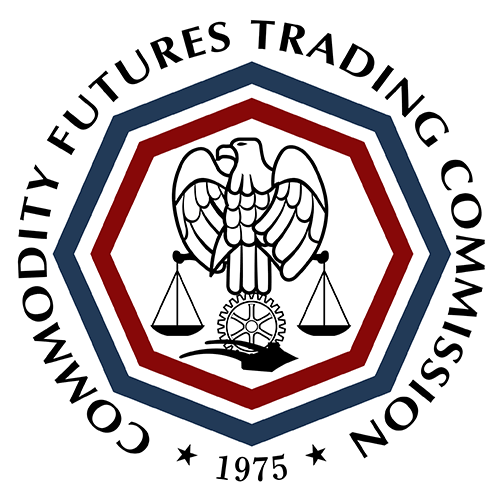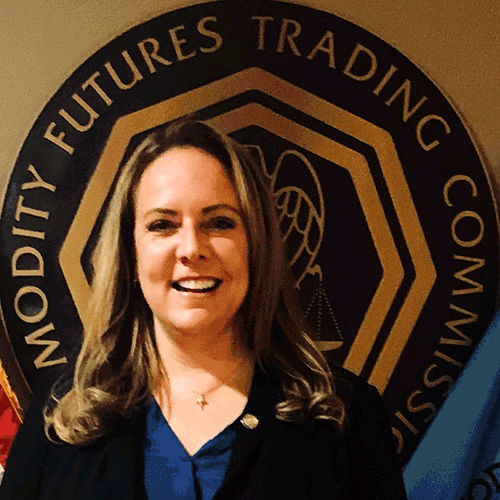CFTC Commissioner Mersinger Invites Nervous Enterprises To Come Chat About Blockchain Regulations
When it comes to working with distributed ledgers and cryptocurrencies, one of the most significant barriers to enterprise adoption is the significant regulatory uncertainty that enshrouds the blockchain industry. This is especially true of the United States, where lawmakers, regulators, and the industry have been gridlocked over a multitude of wildly opposing viewpoints. Meanwhile, as the regulatory perimeter shifts continue to shift, enterprises are stuck in a Catch-22; Either move forward with their blockchain pilots and run the risk of irritating officials at the US Securities and Exchange Commission (SEC), the Commodity Futures Trading Commission (CFTC) or other American agencies. Or, risk disruption by putting their projects on hold until the legalities of working with blockchain are less ambiguous.
While at DC Blockchain Summit 2023, Blockchain Journal editor-in-chief David Berlind caught up with CFTC Commissioner Summer Mersinger to ask her what she thinks enterprises should do while the wheels of legislation turn at their typical, glacially slow pace. According to Mersinger, the best thing for enterprises to do is come into her office for a chat. Mersinger says she has an open-door policy and room on her calendar for those companies seeking legislative therapy.
(The full-text transcript appears below.)
Published:March 29, 2023

7 min read
Audio-Only Podcast


Full-text transcript of David Berlind's Interview with Summer Mersinger, Commissioner, Commodity Futures Trading Commission (CFTC)
David Berlind: I'm David Berlind with the Blockchain Journal podcast. I'm coming to you from the DC Blockchain Summit 2023 here in Washington, DC, where all the different lawmakers, regulators, lobbyists. They're all gathered here to talk about the future of regulation of the blockchain industry and cryptocurrency. Standing with me is one of the movers and shakers in that industry, one of the regulators, this is Summer Mersinger. She is the commissioner at the Commodity Futures Trading Commission (CTFC). Actually, there's more than one commissioner, so let's start there. Why is there more than one commissioner?
Summer Mersinger: So that's the way the commission was set up by Congress when the statute was created to create the commission. We were actually originally a division of the US Department of Agriculture, which is interesting in and of itself, and that's because our base contracts are in agriculture futures. So when Congress decided to spin us out of the Department of Agriculture and put us in our own agency, they decided to create a bipartisan commission. There's normally five commissioners with the chairman being of the party of the President, and usually, depending on who's in charge - who's the president, you could either have a Republican or a Democrat chairman, and then you have never more than three commissioners of one party.
Berlind: Okay. So, a bunch of commissioners there. Are you all focused on different issues?
Mersinger: No, we do have to collectively address issues that come before the commission together, but we all have different backgrounds, and it really does play in nicely because we have the expertise in different areas and we're able to bring that together to really help the agency. Everybody has their own interests and they might spend a little more time on one sector versus another, but we definitely all are very involved in any of the different industries that come before our agency.
Berlind: And one of the big issues for enterprises when they are considering the adoption of blockchain is the uncertainty when it comes to cryptocurrency regulation. It's a real blocker to adoption because enterprises know regulations are coming. Lots of enterprises don't like regulation at all. And when there's no regulation, they'll just go ahead and do whatever it is they need to do. But when they know it's coming, it kind of paralyzes them because then they're sort of like, "Well, we don't want to wake up one morning and find ourselves on the wrong side of the law, so let's wait to see what happens." So, how does the CFTC look at that particular issue because enterprises are going to be the ones that really drive blockchain and cryptocurrency?
Mersinger: Yeah. No, and regulatory uncertainty is difficult when you're trying to innovate, when you're trying to bring new technology and more efficient methods to market. So we try to be mindful of that, but we also have to be mindful of the fact that we have limitations on our statute to how far we can regulate based on the law. And the way it stands right now, we're a little bit limited in that space. So if there's blockchain technology and it's being implemented in our futures and derivatives markets, certainly then we can step in and consider regulation. But if they're not in those markets, we really don't have that jurisdiction. And that gets tough. To try to thread that needle, we try to help the legislative branch as much as we can to help guide them, let them know what we do or what we could change in the statute so we could do a little bit more on the side of providing regulatory certainty. But right now, we are a little bit limited by the statutory authority we have.
Berlind: So what do you recommend to enterprises, the general councils, the CFOs who are all sort of in a holding pattern? What do they do? Because one of the big issues that's being discussed here is how the uncertainty around regulation is holding back innovation. So, what do you recommend?
Mersinger: Well, our agency is one where we do say, "Come in and talk to us." I know that there's a fear of coming in to talk to the regulators, but I will say at the CFTC, we really do encourage folks to come in and talk to us. We can help try to guide people to stay within the regulation that exists. It might not solve all their problems, but at least gives them some framework to do at least some of what they're trying to do. So I always say, "Come in and talk to us." And it also helps us when we go to the legislative branch and say, "Here is what we're seeing. Here's what probably would need to change for us to properly regulate here."
Berlind: Is that an open invitation? Because if our audience sees that, you're going to have a line at the door and you're going to be one busy person.
Mersinger: I have always said, "My door is open. Everyone's welcome to come in." It's how I learn, it's how I do my job better. And I do encourage folks to come and talk to us and tell us what they're doing because I'm only as good of a regulator over a space as I can understand that space.
Berlind: A lot of people take a view that there's a wrestling match between the CFTC and the SEC over the jurisdiction of cryptocurrency, the regulation of it, absent of any laws, what to do about it. So how do you view that opinion? Is it a wrestling match? I heard the word harmonizing when you guys are on stage, you're harmonizing with what's going on with other countries, but what about just inside of the US itself?
Mersinger: No, it's tough because there are areas of overlap, and this isn't unique to digital assets. We've seen this before where we've had some overlap between the CFTC jurisdiction and the SEC jurisdiction. We have this with other regulars, too. We know how to come together and create some sort of a framework to help guide industry to say, "Who's your proper regulator?" That's what we need to do here. Easier said than done, but at some point, I do think we have to sit down and really just do the hard work to help guide industry so they know which regulator to come in and talk to.
Berlind: Yeah, you guys got to hammer something out.
Mersinger: Exactly. We can't continue deciding what's a security and what's a commodity based on what the enforcement division is going to file in court. That's not the right way to do this.
Berlind: So, how long? Is somebody taking the lead on this and pulling you into a room and saying, "Guys, we got to get this done before the rest of the world gets it done?"
Mersinger: We're not there yet, but I think the more focus there is on this tension between trying to figure out the definitions here and where the regulatory jurisdiction line is, I think the more pressure there will be on the two agencies to come together and try to at least come up with a framework.
Berlind: Now, Representative Tom Emmer gave the keynote speech here, and he specifically said, CBDCs are a bad idea. Is that the same view that is taken at the CFTC?
Mersinger: We don't really have a view on central bank digital currencies. To me, that's more of a Fed decision. I think sometimes we have to remember to separate the technology from the actual token or coin. And I do get worried when we say certain things are a bad idea, that we have to make sure we're not saying the technology that underlies them wouldn't be useful. So, maybe a central bank digital currency isn't a great idea, but certainly, the blockchain technology, the distributed ledger technology would be really efficient for the Federal Reserve system and for the US banking system. So it's that dividing between the token and the asset and the technology that I think we need to do more of.
Berlind: Okay. Well, Summer Mersinger, commissioner at the CFTC, thank you very much for joining us on the Blockchain Journal podcast.
Mersinger: No, thank you for having me. This was great.












